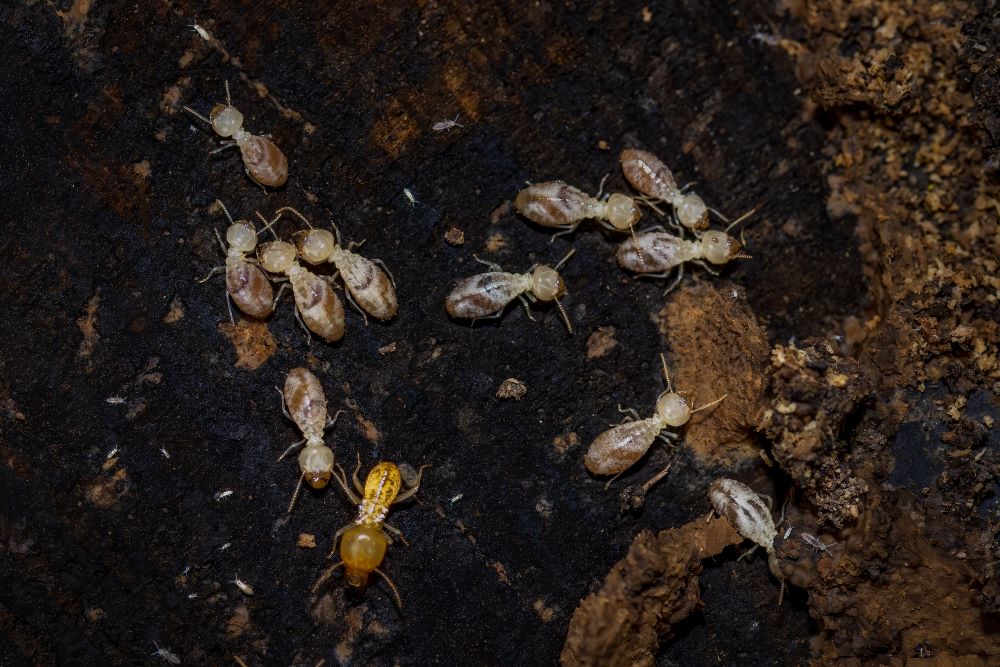
Are you a gardener or homeowner concerned about the potential link between mulch and termites? This guide is for you. We’ll delve into the question, “Does mulch attract termites?” and explore everything you need to know about this common concern.
The Role of Mulch in Gardening
Mulch plays a critical role in gardening, acting as a protective layer over soil to conserve moisture, improve soil health, and suppress weed growth. It’s a gardener’s best friend, but the question remains – does mulch attract termites?
Understanding Termites: The Basics
Termites are creatures that can cause significant damage, particularly to wooden structures. There are different types of termites, including subterranean and drywood termites. The former lives in underground colonies and surfaces to find food, while the latter can survive without additional moisture and feeds on dry wood.
The Connection Between Mulch and Termites
The relationship between mulch and termites is more complex than it appears. It’s not so much the mulch itself that attracts termites, but the conditions it creates. Moist soil beneath mulch can make an ideal home for termites. However, the types of wood used as mulch are often not the termites’ preferred food source. Instead, termites prefer higher-quality wood, such as construction debris.
Types of Mulch and Their Relationship with Termites
Not all mulch is created equal when it comes to attracting termites. Here’s a look at the relationship between different types of mulch and these pests:
- Melaleuca: Termites particularly dislike this type of mulch, making it an excellent choice for termite-prone areas.
- Cypress heartwood: This mulch is termite-resistant, but most cypress mulches are not heartwood, which termites can survive on.
- Pine straw: Despite being a popular alternative to wood mulch, pine straw doesn’t fare much better against termites.
- Cedar: The jury is still out on whether termites eat cedar mulch, with varying results reported.
The Importance of Mulch Placement
Regardless of the type of mulch you use, it’s crucial to ensure a buffer between the mulch and your home’s foundation. This helps prevent the creation of a damp environment that could attract termites. It’s also advisable to avoid applying mulch too heavily, as this could create conditions that termites prefer.
Does Mulch Attract Termites? The Verdict
So, does mulch attract termites? The answer is nuanced. Mulch itself doesn’t attract termites, but the damp soil conditions it can create might. That said, termites are less likely to heavily feed on mulch, especially if they have access to higher-quality wood sources.
How to Keep Termites at Bay
Keeping termites at bay involves more than just careful mulch application. Keep an eye out for signs of termite activity, such as mud tubes on foundation blocks or accumulations of wings. If you suspect termites, consider contacting a professional extermination service, such as Recon Pest Services, for an inspection and quote.
Natural Remedies for Termites
If you find termites in your garden, resist the urge to spray toxic insecticides. Instead, consider natural remedies, such as cedar oil or orange oil. These are non-toxic to humans and can help repel termites. If you have a severe infestation, professional pest control services can provide non-toxic treatments.
Conclusion
While mulch can create conditions that termites might find attractive, it’s not the mulch itself that lures these pests. By choosing termite-resistant mulch types and placing your mulch carefully, you can enjoy the benefits of mulch without worrying about a termite invasion.
About Recon Pest Services
If you’re in Omaha and concerned about termites, Recon Pest Services has got you covered. As the area’s leading termite removal and monitoring service, we’re here to help protect your home from these destructive pests. Contact us today for a free quote!


